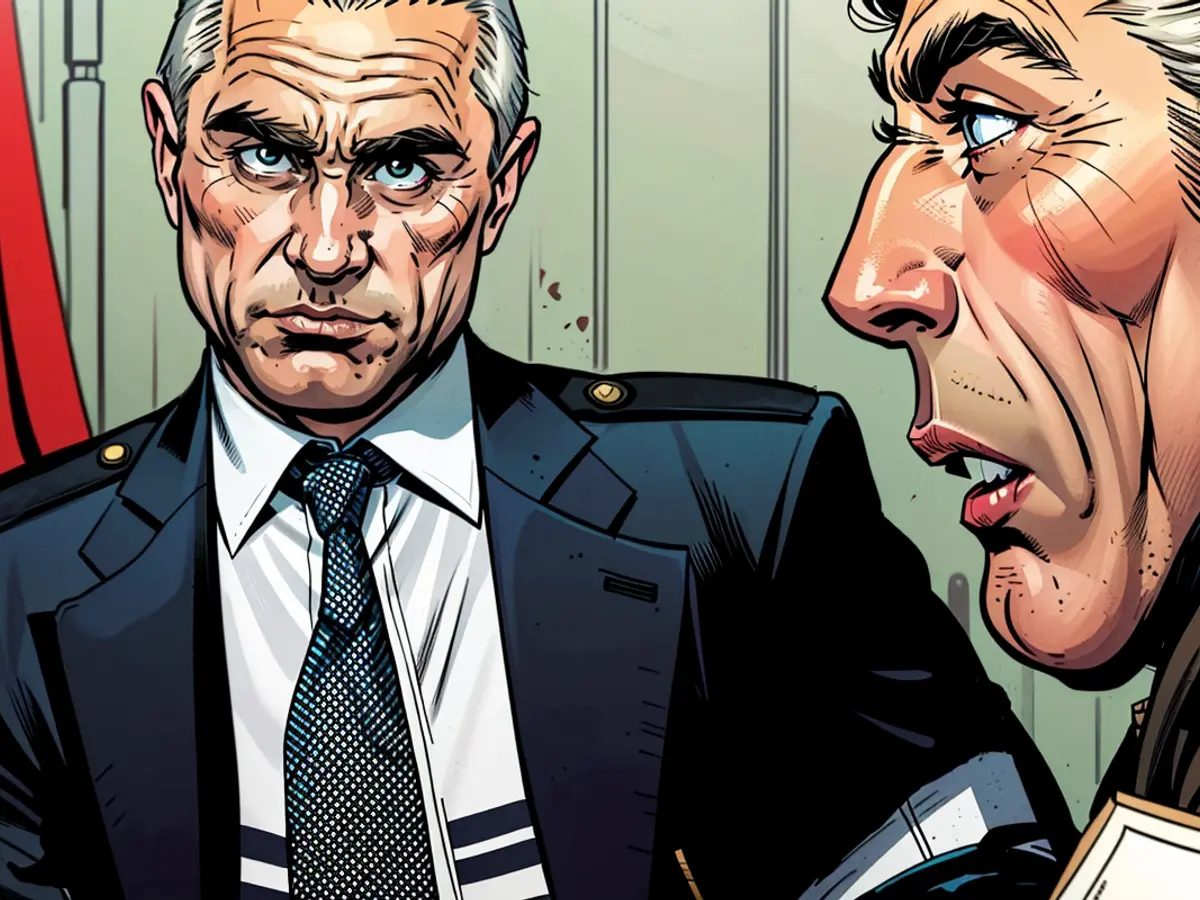- Putin wants peace at last on the new Kursk front
Russia's President Vladimir Putin has ordered his armed forces to finally halt the Ukrainian army's week-long advance into the Russian region of Kursk. "The main task of the Ministry of Defense now is to expel the enemy from our territories and ensure reliable border security," Putin said at a crisis meeting in Moscow.
The current governor of Kursk, Alexei Smirnov, inadvertently revealed the depth of Russia's shock from the surprise incursion during the meeting. He said that 120,000 people had been evacuated from affected or threatened districts in his region, with another 60,000 still there where evacuation was necessary. "The situation in the region is difficult," he said. There had been 12 deaths and 121 injuries, including 10 children, and about 2,000 people were missing.
Putin rebuked Smirnov for commenting on military matters, instructing him to stick to social issues instead.
The actual situation on this front remained unclear seven days after the Ukrainian incursion. Ukraine has been fending off a Russian invasion for nearly two and a half years and has now launched an offensive into Russian territory for the first time. Since last Tuesday, Ukrainian units have reportedly established positions in several places. The goal of the operation remains unclear, but the attacks have given the Ukrainian army greater freedom of movement and presented the Russian side with unexpected challenges. Residents in the affected Russian region have complained in recent days about the poor organization of evacuations, with thousands fleeing their homes.
Putin rejects negotiations
Ukraine aims to strengthen its future negotiating position with the offensive, Putin said, but he ruled out talks. "How can we negotiate with people who randomly attack civilians and civilian infrastructure, or try to endanger nuclear power plants?" he asked. The Russian offensive in eastern and southern Ukraine will continue unimpeded, he announced.
Putin ordered the FSB and National Guard to track down and neutralize Ukrainian reconnaissance and sabotage groups. Russia has declared an anti-terrorist operation in the border regions of Bryansk, Kursk, and Belgorod, giving the FSB control. However, it also means that the secret service, army, and National Guard must coordinate. "Despite the deployment of additional army units, it has not yet been possible to stabilize the front line," wrote the Russian military blogger Rybar.
Evacuations also in the Belgorod region
At the crisis meeting, the governor of the Belgorod region, Vyacheslav Gladkov, also spoke of a difficult situation for nearly 115,000 people near the Ukrainian border. Evacuation of residents in the Krasnaya Yaruga district has begun, with about 11,000 people leaving the area. According to Rybar, Ukrainian forces attempted to cross the border at the Kolotilovka crossing with soldiers and tanks, but this was repelled.
No radiation after fire at Zaporizhzhia NPP
After a fire at the Russian-occupied Zaporizhzhia nuclear power plant in Ukraine, no increased radiation has been detected, according to the Ukrainian Ministry of Energy. "With the means at our disposal, the monitoring systems, no emissions or releases of radioactive substances have been detected," said Deputy Ukrainian Energy Minister Svitlana Hryntschuk on television. The fire on Sunday evening likely damaged a cooling tower and other facilities.
Hryntschuk blamed the Russian occupation for causing the fire. President Volodymyr Zelenskyy had previously made similar statements. The Russian-appointed power plant management and the administration for the occupied part of the Zaporizhzhia region spoke of a Ukrainian drone attack. However, the Russian side also clarified that the fire was only on the power plant grounds at a cooling tower.
Observers from the International Atomic Energy Agency (IAEA) are stationed at the power plant, and according to Russian reports, they were allowed to inspect the damage the next day. The damage to the cooling tower does not impair the safety of the six shut-down reactors, said the IAEA's Director General Rafael Grossi in Vienna. However, he warned: "Any kind of fire on the site or nearby means the risk that it could also spread to safety-related facilities."
The Ukrainian army's advance into the Russian region of Kursk has been halted by President Vladimir Putin, focusing on expelling the enemy and securing borders. This halt came after the governor of Kursk, Alexei Smirnov, revealed the impact of the incursion, including 120,000 evacuated people and 12 deaths. (The Kursk)
In the aftermath of the Ukrainian incursion into Kursk, President Putin has ordered the FSB and National Guard to track down and neutralize Ukrainian reconnaissance and sabotage groups in the border regions, including Kursk. (Russia)








